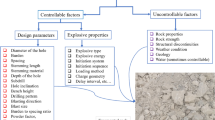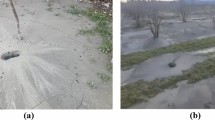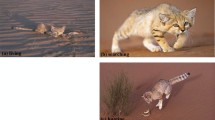Abstract
The unconfined compressive strength (UCS) of rocks is one of the most important properties used in rock science and engineering practices. Thus, many researchers attempt to develop computational intelligence models for estimating the UCS of different types of rocks. This study develops and compares eight models to estimate the rock UCS. Six hybrid ANNs were constructed using artificial bee colony, ant colony optimization, antlion optimizer, imperialist competitive algorithm, shuffled complex evolution, and teaching learning-based optimization algorithms. Additionally, two regression-based computational models, namely multivariate adaptive regression splines (MARS) and Gaussian process regression (GPR), were utilized. The experimental datasets at different locations in Malaysia and Iran, including the UCS and other rock indices, were collected and used in this work. Experimental findings indicate that the performances of all models are adequate for UCS estimation, with R2 values scattered in the range of 0.87 to 0.97 and 0.94 to 0.98 in the training and testing phases, respectively. However, the developed MARS model was ranked high compared to other models, including GPR and hybrid ANNs, and the RMSE of the MARS model was found to be 2.27 MPa. Overall, the developed MARS model outperformed other employed models based on the R2 and RMSE criteria and can be utilized precisely for the UCS estimate of rocks.










Similar content being viewed by others
References
Abdi B, Mozafari H, Ayob A, Kohandel R (2011) Imperialist competitive algorithm and its application in optimization of laminated composite structures. Eur J Sci Res 55(2):174–187
Aderhold, Andrej, Konrad Diwold, Alexander Scheidler, and Martin Middendorf. 2010. “Artificial bee colony optimization: a new selection scheme and its performance.” In Studies in Computational Intelligence, 283–94. https://doi.org/10.1007/978-3-642-12538-6_24
Aladejare, Emman, Ozoji, Toochukwu, Lawal, Abiodun, and Zhang, Zongxian. 2022. “Soft computing-based models for predicting the characteristic impedance of igneous rock from their physico-mechanical properties” Rock Mechanics and Rock Engineering (2022) 55:4291–4304 https://doi.org/10.1007/s00603-022-02836-5
Asteris PG, Mokos VG (2020) Concrete compressive strength using artificial neural networks. Neural Comput Appl 32(15):11807–11826
Atashpaz-Gargari E, Lucas C (2007) Imperialist competitive algorithm: an algorithm for optimization inspired by imperialistic competition. In 2007 IEEE congress on evolutionary computation, IEEE, Singapore, pp. 4661–4667. https://doi.org/10.1109/CEC.2007.4425083
Barzegar R, Sattarpour M, Nikudel MR, Moghaddam AA (2016) Comparative evaluation of artificial intelligence models for prediction of uniaxial compressive strength of travertine rocks, case study: Azarshahr area, NW Iran. Model Earth Syst Environ 2(2):76. https://doi.org/10.1007/s40808-016-0132-8
Barzegar R, Sattarpour M, Deo R, Fijani E, Adamowski J (2020) An ensemble tree-based machine learning model for predicting the uniaxial compressive strength of travertine rocks. Neural Comput Appl 32(13):9065–9080. https://doi.org/10.1007/s00521-019-04418-z
Benali A, Hachama M, Bounif A, Nechnech A, Karray M (2019) A TLBO-optimized artificial neural network for modeling axial capacity of pile foundations. Eng Comput. https://doi.org/10.1007/s00366-019-00847-5.10.1007/s00366-019-00847-5
Blum C (2005) Ant colony optimization: introduction and recent trends. Phys Life Rev 2(4):353–373. https://doi.org/10.1016/j.plrev.2005.10.001
Çelik SB, Çobanoğlu İ (2019) Comparative investigation of Shore, Schmidt, and Leeb hardness tests in the characterization of rock materials. Environ Earth Sci 78(18):554. https://doi.org/10.1007/s12665-019-8567-7
Ceylan H, Gopalakrishnan K (2014) Finite element based hybrid evolutionary optimization approach to solving rigid pavement inversion problem. Eng Comput 30(1):1–13. https://doi.org/10.1007/s00366-012-0281-y
Chen Xu, Bin Xu, Kunjie Yu, Wenli Du (2018) Teaching-learning-based optimization with learning enthusiasm mechanism and its application in chemical engineering. J Appl Math 2018:1–19. https://doi.org/10.1155/2018/1806947
Duan QY, Gupta VK, Sorooshian S (1993) Shuffled complex evolution approach for effective and efficient global minimization. J Optim Theory Appl 76(3):501–521. https://doi.org/10.1007/BF00939380
Ebdali M, Khorasani E, Salehin S (2020) A comparative study of various hybrid neural networks and regression analysis to predict unconfined compressive strength of travertine regression analysis to predict unconfined compressive strength of travertine. Innov Infrastruct Solut 5:93
Fattahi H (2017) Applying soft computing methods to predict the uniaxial compressive strength of rocks from Schmidt hammer rebound values. Comput Geosci 21(4):665–681. https://doi.org/10.1007/s10596-017-9642-3
Friedman J (1991) Multivariate adaptive regression splines. Ann Stat 19(1):1–141. https://doi.org/10.1201/9780367816377-7
Gao W, Karbasi M, Hasanipanah M, Zhang X, Guo J (2018) Developing GPR model for forecasting the rock fragmentation in surface mines. Eng Comput 34(2):339–345. https://doi.org/10.1007/s00366-017-0544-8
Ghanizadeh AR, Rahrovan M (2019) Modeling of unconfined compressive strength of soil-RAP blend stabilized with portland cement using multivariate adaptive regression spline. Front Struct Civ Eng 13(4):787–799. https://doi.org/10.1007/s11709-019-0516-8
Hassanvand M, Moradi S, Fattahi M, Zargar G, Kamari M (2018) Estimation of rock uniaxial compressive strength for an Iranian carbonate oil reservoir: modeling vs. artificial neural network application. Petroleum Res 3(4):336–345. https://doi.org/10.1016/j.ptlrs.2018.08.004
Heidari M, Momeni AA, Naseri F (2013) New weathering classifications for granitic rocks based on geomechanical parameters. Eng Geol 166:65–73
Heidari M, Mohseni H, Jalali SH (2018) Prediction of uniaxial compressive strength of some sedimentary rocks by fuzzy and regression models. Geotech Geol Eng 36(1):401–412. https://doi.org/10.1007/s10706-017-0334-5
Hoang N-D, Pham A-D, Nguyen Q-L, Pham Q-N (2016) Estimating compressive strength of high performance concrete with Gaussian process regression model. Adv Civil Eng 2016:1–8. https://doi.org/10.1155/2016/2861380
Hosseini S, Khaled AA (2014) A survey on the imperialist competitive algorithm metaheuristic: implementation in engineering domain and directions for future research. Appl Soft Comput 24(November):1078–1094. https://doi.org/10.1016/j.asoc.2014.08.024
Hu H, Li Y, Bai Y, Zhang J, Liu M (2019) The improved antlion optimizer and artificial neural network for Chinese influenza prediction. Complexity 2019(August):1–12. https://doi.org/10.1155/2019/1480392
Huang L, Asteris PG, Koopialipoor M, Armaghani DJ, Tahir MM (2019) Invasive weed optimization technique-based ANN to the prediction of rock tensile strength. Appl Sci 9(24):5372. https://doi.org/10.3390/app9245372
Jahed D, Tonnizam E, Momeni E, Narayanasamy MS, Amin MFM (2015) An adaptive neuro-fuzzy inference system for predicting unconfined compressive strength and Young’s modulus: a study on main range granite. Bull Eng Geol Env 74(4):1301–1319. https://doi.org/10.1007/s10064-014-0687-4
Jahed D, Tonnizam E, Hajihassani M, Yagiz S, Motaghedi H (2016a) Application of several non-linear prediction tools for estimating uniaxial compressive strength of granitic rocks and comparison of their performances. Eng Comput 32(2):189–206. https://doi.org/10.1007/s00366-015-0410-5
Jahed D, Mohd MF, Yagiz S, Faradonbeh RS, Abdullah RA (2016b) Prediction of the uniaxial compressive strength of sandstone using various modeling techniques. Int J Rock Mech Min Sci 85(May):174–186. https://doi.org/10.1016/j.ijrmms.2016.03.018
Jahed D, Safari V, Fahimifar A, Amin MFM, Monjezi M, Mohammadi MA (2018) Uniaxial compressive strength prediction through a new technique based on gene expression programming. Neural Comput Appl 30(11):3523–3532. https://doi.org/10.1007/s00521-017-2939-2
Jalali H, Heidari M, Mohseni H (2017) Comparison of models for estimating uniaxial compressive strength of some sedimentary rocks from qom formation. Environ Earth Sci 76(22):753. https://doi.org/10.1007/s12665-017-7090-y
Karaboga D, Basturk B (2007) A powerful and efficient algorithm for numerical function optimization: artificial bee colony (ABC) algorithm. J Global Optim 39(3):459–471
Kartal Koc E, Bozdogan H (2015) Model selection in multivariate adaptive regression splines (MARS) using information complexity as the fitness function. Mach Learn 101(1–3):35–58. https://doi.org/10.1007/s10994-014-5440-5
Khandelwal M, Armaghani DJ (2016) Prediction of drillability of rocks with strength properties using a hybrid GA-ANN technique. Geotech Geol Eng 34(2):605–620. https://doi.org/10.1007/s10706-015-9970-9
Sunghwan Kim, and Gopalakrishnan Kasthurirangan (2010) “Sustainable rehabilitation of deteriorated concrete highways: condition assessment using shuffled complex evolution (SCE) global optimization approach.” Chapter In Sustainable and Resilient Critical Infrastructure Systems, Editors: Kasthurirangan Gopalakrishnan, and Srinivas Peeta, pp. 249–65. Berlin, Heidelberg: Springer Berlin Heidelberg. https://doi.org/10.1007/978-3-642-11405-2_10
Köken E, Koca TK (2022) Evaluation of soft computing methods for estimating tangential young modulus of intact rock based on statistical performance indices. Geotech Geol Eng 40:3619–3631
Koopialipoor M, Ghaleini EN, Tootoonchi H, Armaghani DJ, Haghighi M, Hedayat A (2019) Developing a new intelligent technique to predict overbreak in tunnels using an artificial bee colony-based ANN. Environ Earth Sci 78(5):165. https://doi.org/10.1007/s12665-019-8163-x
Kose U (2018) An ant-lion optimizer-trained artificial neural network system for chaotic electroencephalogram (EEG) Prediction. Appl Sci 8(9):1613. https://doi.org/10.3390/app8091613
Kurtuluş C, Sertçelik F, Sertçelik I (2016) Correlating physico-mechanical properties of intact rocks with P-wave velocity. Acta Geod Geoph 51(3):571–582. https://doi.org/10.1007/s40328-015-0145-1
Lee J-S, Yoon H-K (2017) Characterization of rock weathering using elastic waves: a laboratory-scale experimental study. J Appl Geophys 140:24–33
Li X, Yang G (2016) Artificial bee colony algorithm with memory. Appl Soft Comput 41(April):362–372. https://doi.org/10.1016/j.asoc.2015.12.046
Lin C, Li T, Chen S, Liu X, Lin C, Liang S (2019) Gaussian process regression-based forecasting model of dam deformation. Neural Comput Appl 31(12):8503–8518. https://doi.org/10.1007/s00521-019-04375-7
Madhubabu N, Singh PK, Kainthola A, Mahanta B, Tripathy A, Singh TN (2016) Prediction of compressive strength and elastic modulus of carbonate rocks. Measurement 88(June):202–213. https://doi.org/10.1016/j.measurement.2016.03.050
Mapari S, Gaumer R, Camarda KV (2018) Antibiotic molecular design using multi-objective optimization. Computer Aided Chemical Engineering, 44:169–74. https://doi.org/10.1016/B978-0-444-64241-7.50023-9
Mirjalili S (2015) The ant lion optimizer. Adv Eng Softw 83(May):80–98. https://doi.org/10.1016/j.advengsoft.2015.01.010
Mishra DA, Basu A (2013) Estimation of uniaxial compressive strength of rock materials by index tests using regression analysis and fuzzy inference system. Eng Geol 160(June):54–68. https://doi.org/10.1016/j.enggeo.2013.04.004
Mishra DA, Srigyan M, Basu A, Rokade PJ (2015) Soft computing methods for estimating the uniaxial compressive strength of intact rock from index tests. Int J Rock Mech Min Sci 80(December):418–424. https://doi.org/10.1016/j.ijrmms.2015.10.012
Mohamad ET, Armaghani DJ, Momeni E, Abad SVANK (2015) Prediction of the unconfined compressive strength of soft rocks: a PSO-based ANN approach. Bull Eng Geol Env 74(3):745–757. https://doi.org/10.1007/s10064-014-0638-0
Momeni E, Armaghani DJ, Hajihassani M, Amin MFM (2015) Prediction of uniaxial compressive strength of rock samples using hybrid particle swarm optimization-based artificial neural networks. Measurement 60(January):50–63. https://doi.org/10.1016/j.measurement.2014.09.075
Mukkamala, S, Sung AH, Abraham A, Ramos V (2004) Intrusion detection systems using adaptive regression splines. ICEIS 2004 - Proceedings of the Sixth International Conference on Enterprise Information Systems, 26–33
Naeini M, Ralinamay B, Analui HV, Gupta Q. Duan, Soroosliian S (2019) Three decades of the shuffled complex evolution (Sce-Ua) optimization algorithm: review and applications. Sci Iran. https://doi.org/10.24200/sci.2019.21500
Pu Y, Apel DB, Chen J, Wei C (2020) A Gaussian process machine learning model for cemented rockfill strength prediction at a diamond mine. Neural Comput Appl 32(14):9929–9937. https://doi.org/10.1007/s00521-019-04517-x
Raja MNA, Shukla SK (2020) An extreme learning machine model for geosynthetic-reinforced sandy soil foundations. Proceedings of the institution of civil engineers-geotechnical engineering, 175(4):383–403.
Raja MNA, Shukla SK, Khan MUA (2021) An intelligent approach for predicting the strength of geosynthetic-reinforced subgrade soil. Int J Pavement Eng 23(10):3505–3521. https://doi.org/10.1080/10298436.2021.1904237
Raja MNA, Shukla SK (2021a) Multivariate adaptive regression splines model for reinforced soil foundations. Geosynth Int 28(4):368–390
Raja MNA, Shukla SK (2021b) Predicting the settlement of geosynthetic-reinforced soil foundations using evolutionary artificial intelligence technique. Geotext Geomembr 49(5):1280–1293
Rao RV, Savsani VJ, Vakharia DP (2011) Teaching–learning-based optimization: a novel method for constrained mechanical design optimization problems. Comput Aided Des 43(3):303–315. https://doi.org/10.1016/j.cad.2010.12.015
Rao RV, Savsani VJ, Balic J (2012) Teaching–learning-based optimization algorithm for unconstrained and constrained real-parameter optimization problems. Eng Optim 44(12):1447–1462. https://doi.org/10.1080/0305215X.2011.652103
Saghatforoush A, Monjezi M, Faradonbeh RS, Armaghani DJ (2016) Combination of neural network and ant colony optimization algorithms for prediction and optimization of flyrock and back-break induced by blasting. Eng Comput 32(2):255–266. https://doi.org/10.1007/s00366-015-0415-0
Sahab MG, Toropov VV, Gandomi AH (2013) A review on traditional and modern structural optimization. Chapter 2 in Metaheuristic Applications in Structures and Infrastructures, Elsevier, Editors: Amir Gandomi, Xin-She Yang, Siamak Talatahari, and Amir Alavi, pp.25–47. https://doi.org/10.1016/B978-0-12-398364-0.00002-4
Saldaña M, González J, Pérez-Rey I, Jeldres M, Toro N (2020) Applying statistical analysis and machine learning for modeling the UCS from P-wave velocity, density and porosity on dry travertine. Appl Sci 10(13):4565. https://doi.org/10.3390/app10134565
Salehin S (2017) Investigation into engineering parameters of marls from Seydoon dam in Iran. Jo Rock Mech Geotech Eng 9(5):912–923
Selçuk L, Yabalak E (2015) Evaluation of the ratio between uniaxial compressive strength and Schmidt hammer rebound number and its effectiveness in predicting rock strength. Nondestructive Testing and Evaluation 30(1):1–12. https://doi.org/10.1080/10589759.2014.977789
Shahani M, Zheng X, Liu C, Li P, Hassan FU (2022) Application of soft computing methods to estimate uniaxial compressive strength and elastic modulus of soft sedimentary rocks. Arab J Geosci 15:384
Sihag P, Suthar M, Mohanty S (2019) Estimation of UCS-FT of dispersive soil stabilized with fly ash, cement clinker and GGBS by artificial intelligence. Iranian Journal of Science and Technology - Transactions of Civil Engineering. https://doi.org/10.1007/s40996-019-00329-0.10.1007/s40996-019-00329-0
Suthar M (2020) Applying several machine learning approaches for prediction of unconfined compressive strength of stabilized pond ashes. Neural Comput Appl 32(13):9019–9028. https://doi.org/10.1007/s00521-019-04411-6
Tapao A, Cheerarot R (2017) Optimal parameters and performance of artificial bee colony algorithm for minimum cost design of reinforced concrete frames. Eng Struct 151(November):802–820. https://doi.org/10.1016/j.engstruct.2017.08.059
Teymen A, Mengüç EC (2020) Comparative evaluation of different statistical tools for the prediction of uniaxial compressive strength of rocks. Int J Min Sci Technol. https://doi.org/10.1016/j.ijmst.2020.06.008
Tiryaki B (2008) Predicting intact rock strength for mechanical excavation using multivariate statistics, artificial neural networks, and regression trees. Eng Geol 99(1–2):51–60. https://doi.org/10.1016/j.enggeo.2008.02.003
Torabi-Kaveh M, Naseri F, Saneie S, Sarshari B (2015) Application of artificial neural networks and multivariate statistics to predict UCS and E using physical properties of Asmari limestones. Arab J Geosci 8(5):2889–2897. https://doi.org/10.1007/s12517-014-1331-0
Wang M, Wan W, Zhao Y (2020) Prediction of the uniaxial compressive strength of rocks from simple index tests using a random forest predictive model. Comptes Rendus Mécanique 348(1):3–32. https://doi.org/10.5802/crmeca.3
Xu C, Zhang ZL, Zhang Z (2018) Prediction of UCS based on multivariate adaptive regression splines and the BP neural network. Chapter in Deep Rock Mechanics: From Research to Engineering, CRC Press. Editors: Heping Xie, Jian Zhao, P G Ranjith, pp. 423–30. https://doi.org/10.1201/9781351042666-42
Funding
This work was supported by the Materials and Components Technology Development Program (20015240, development of micro-phase change material (PCM) manufacturing technology and heat-generating concrete for heating energy saving using the same) funded by the Ministry of Trade, Industry, and Energy (MOTIE, Korea).
Author information
Authors and Affiliations
Corresponding author
Ethics declarations
Competing interest
The authors declare no competing interests.
Additional information
Responsible Editor: Murat Karakus
Rights and permissions
Springer Nature or its licensor (e.g. a society or other partner) holds exclusive rights to this article under a publishing agreement with the author(s) or other rightsholder(s); author self-archiving of the accepted manuscript version of this article is solely governed by the terms of such publishing agreement and applicable law.
About this article
Cite this article
Kaloop, M.R., Bardhan, A., Samui, P. et al. Computational intelligence approaches for estimating the unconfined compressive strength of rocks. Arab J Geosci 16, 37 (2023). https://doi.org/10.1007/s12517-022-11085-3
Received:
Accepted:
Published:
DOI: https://doi.org/10.1007/s12517-022-11085-3




